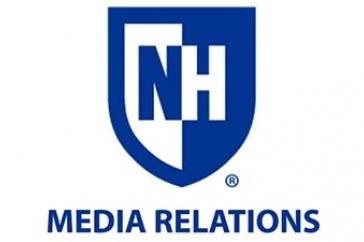UNH Study Shows Fake News and COVID-19 Make Consumers Spend on the Cheap

DURHAM, N.H.— People exposed to fake news during the already uncertain COVID-19 era are simultaneously compelled to treat themselves as well as try to save money, according to new research from the University of New Hampshire and the University of Colorado Boulder.
The paper, recently published online in the Journal of the Association for Consumer Research, outlines three studies where participants exposed to fake news felt uncertain, especially during the pandemic, and even when researchers simply reminded participants that fake news exists.
“COVID-19 did not happen in a vacuum. The pandemic came in on the heels of this other societal issue of misinformation that the world is still figuring out,” said Justin Pomerance, assistant professor of marketing and study co-author. “We found that the uncertainty increased consumers’ tendency towards two competing goals: spending and saving.”
In the studies, researchers asked participants a series of questions about making hypothetical choices between premium or cost-effective food and grocery products. Researchers measured consumers’ general preferences, their specific preferences when buying food at a restaurant, and choices when selecting from a meal delivery service. They were surprised to find that the uncertainty caused people to feel a joint desire to save money for the future but also spend a little bit to make them feel better. This was accomplished through balancing spending, like penny-pinching and splurging, making cheaper choices, or still treating themselves, like having an expensive glass of wine but cutting back to only one glass.
The uncertainty that fake news created played out somewhat differently for people of different income levels. While higher-income earners wanted to balance out treat purchases with value buys, people making less money leaned towards purchasing one or the other. But fake news’ sway over consumers’ spending habits during the pandemic did not depend on political party and occurred whenever participants felt they had been exposed to misinformation, regardless of whether or not they actually had.
Researchers point out that while the study shows how fake news impacts people’s psyches during the pandemic, their studied began in 2019. But they say the findings have important implications for both businesses and policy makers. The researchers say beyond positioning products as a treat or affordable splurge, the paper suggests companies pay extra attention to the relationships they have with customers by being more authentic and truthful reducing customers’ feelings of uncertainty, or even anxiety and depression. Companies can take a major step by simply making themselves aware of the misinformation problem and the uncertainty it creates.
Co-authors on the study include Lawrence Williams, associate professor of marketing, and Nicholas Light, a doctoral candidate, both at the University of Colorado Boulder.
The research was funded by a grant from the Marketing Science Institute.
The University of New Hampshire inspires innovation and transforms lives in our state, nation and world. More than 16,000 students from all 50 states and 71 countries engage with an award-winning faculty in top-ranked programs in business, engineering, law, health and human services, liberal arts and the sciences across more than 200 programs of study. As one of the nation’s highest-performing research universities, UNH partners with NASA, NOAA, NSF and NIH, and receives more than $110 million in competitive external funding every year to further explore and define the frontiers of land, sea and space.
Latest News
-
June 18, 2024
-
June 18, 2024
-
May 17, 2024
-
May 14, 2024
-
May 7, 2024

















































